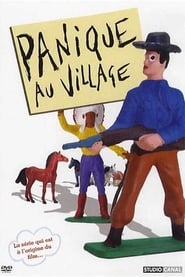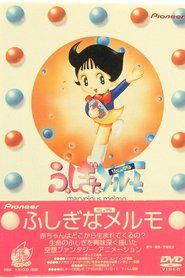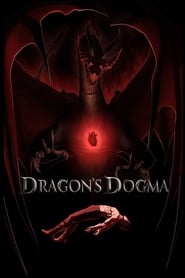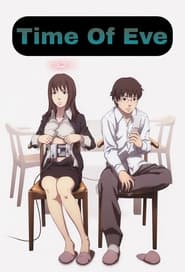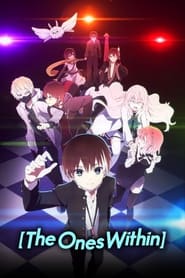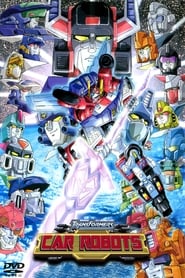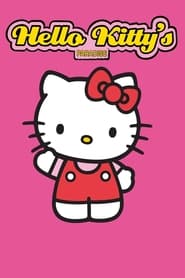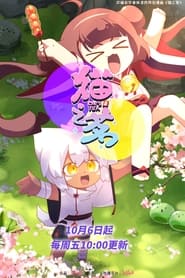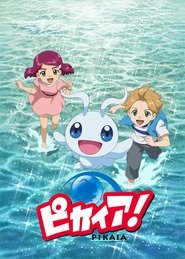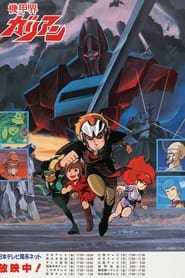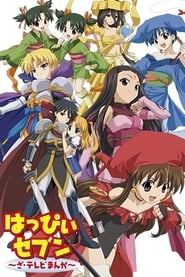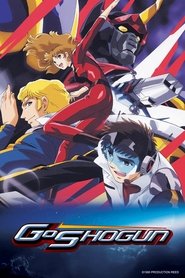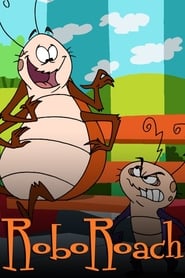Best Animation TV Series - Page 286
-
A Town Called Panic
2002
star 6.9Follows the everyday events of Cowboy, Indian and Horse in a small rural town as they go about their lives. -
Mashin Creator Wataru
2025
star 8Wataru Hoshibe, an elementary school student in fourth grade, is a RyuTuber who wants to become a superstar. His adventure begins in the Chubukai parallel world alongside Ryujinmaru, a Mashin that Wataru created out of blocks to defeat the final boss, Enjoda! -
Lalabel
1980
star 6Lalabel, also known as Lalabel, The Magical Girl or Magical Girl Lalabel, is a magical girl anime by Toei Animation. A 15 minutes long "movie" special called Magical Girl Lalabel: the Sea Calls for a Summer Vacation was also created, it aired in Japan in July 1980. -
ふしぎなメルモ
1971
ふしぎなメルモ
1971
This series centered on Melmo, a nine-year-old girl whose mother is killed in an auto accident and has to then take care of her two younger brothers (Totoo and Touch). While in Heaven, the children's mother is given one wish. Her wish is that Melmo (the oldest out of her 3 children ) will be allowed to grow up more quickly than usual, since their lives as children will be difficult without their parents. -
Dragon's Dogma
2020
star 7Ethan sets out to vanquish the Dragon that took his heart, but with every demon he battles, the more he loses his humanity. -
Time of Eve
2008
star 7.6The future, probably Japan. Robots have long been put into practical use, and androids have just come into use. Influenced by the Robot Ethics Committee, it's become common sense for people to treat androids like household appliances. Their appearance – indistinguishable from humans except for the ring over each android's head – has led some people to empathize unnecessarily with androids. Known as "android-holics", such people have become a social problem. Rikuo, a high school student, has been taught from childhood that androids are not to be viewed as humans, and has always used them as convenient tools. One day, Rikuo discovers some strange data in the behavior records of his family's household android, Sammy. Rikuo and his friend Masaki trace Sammy's movements, only to discover a mysterious café that features a house rule that "humans and robots are to be treated the same". -
The Ones Within
2019
star 7Iride Akatsuki and seven other charismatic game streamers wake up in the world of a mysterious free-to-play game called Naka no Hito Genome. Now they are competing in real-life games with life-or-death stakes, but clearing several game tasks could earn them 100 million lives. -
Petit SEKAI
2022
Petit SEKAI
2022
The first mini-anime series of the smartphone rhythm game "Project SEKAI COLORFUL STAGE! feat. Hatsune Miku", commonly known as "ProSeka", is now available! Enjoy watching the everyday lives of Leo/need, MORE MORE JUMP!, Vivid BAD SQUAD, Wonderlands×Showtime and 25-ji, Nightcord de.! -
Transformers: Car Robots
2000
star 10Fire Convoy fights to protect the Earth from the tyrannical Gigatron and his Destrongers. Aiding him in his quest are the three Car Robo Brothers, Cybertron computer hologram Ai, and human friend Yuki Onishi. -
A Predator in a Skirt
2017
star 6.3The story begins when the reserved Shizuka attends a local mixer party but has trouble adjusting to the atmosphere. A beautiful older female college student named Ryou starts talking to her, and the pair hit it off. Shizuka goes to spend the night at Ryou's place. However, Ryou unexpectedly kisses Shizuka and pushes her down. Shizuka thinks the beautiful woman is a lesbian but soon discovers that Ryou is actually a man dressed as a woman. -
Hello Kitty's Paradise
1999
star 9.3This show follows the adventures of Kitty and her sister Mimi, from everyday activities to far-off adventures in a hot-air balloon. -
Cat's Tea
2021
star 10After a severe scolding from her mother, 15-year-old high school student Jasmine rushes to class in hopes of making it on time. But when a strange storm suddenly hits, lightning strikes down on Jasmine and renders her unconscious. Instead of waking up in the hospital, the girl opens her eyes to a cute, dog-eared boy named Longjing. What's more, Jasmine realizes she now possesses a pair of fluffy cat ears! Figuring she simply has a case of amnesia, Longjing offers to help guide Jasmine around the Tea Continent. Little does he know, she is more than excited to explore this RPG-styled world and fulfill her apparent destiny as the main character. -
Pikaia
2015
star 7In the future, Earth itself is no longer inhabitable by living creatures. Humans begin their interstellar migration with space colonies. Vince and Hana work as researchers in the Cambrian Project. Together with the creature Pikaia, they seek the Lost Code, the key to restoring Earth, and aim to return to Cambrian-era Earth. -
Panzer World Galient
1984
star 7Mader is trying to unify the land of Asato using giant robots. A legend says that a champion, the giant of Iron, will come to destroy all lesser armour. Mader's ambitious son Hai tries to kill him and his other children, Hai's own brother Jordy and little sister Chururu, wanting no question as to the succession. -
Z/X: Ignition
2014
star 7.3The story is set in the not-so-distant future. Five "Black Points" suddenly appeared around the world as portals to parallel worlds. Immediately after, strange creatures began their invasion from these portals. These creatures are the inhabitants of five worlds—the same worlds in different timeframes. In order to ensure their own future timeframe survives, each of the five invasion forces battle to wipe the other future timeframes out. The key is one card-shaped device. -
Forget Me Not Farm
1990
Forget Me Not Farm
1990
Forget Me Not Farm is a BBC children's television programme which ran on BBC Two's children's BBC time slot in the United Kingdom during the 1990s. -
Happy Seven
2005
star 7.5Amano Sakogami is a girl who has an unnatural amount of bad luck. One day, she stumbles into the clubroom of the Better Fortune Research Organization, which consists of a boy and seven other girls who secretly use the power of the luck deities to fight against the Magatsugami, monsters who can affect a person's luck & well-being. -
DBX
2016
star 6It's all out carnage as fighters square off in this DEATH BATTLE exhibition. No rules! No analysis! Only bloodshed! -
GoShogun
1981
star 6.3GoShogun was a super robot anime series produced in 1981 and aired in 1982 in Japan. It is variously referred to in English as "Demon God of the War-Torn Land GoShogun", "Warring Demon God GoShogun", "Civil War Devil-God GoShogun" and "Macron 1". -
Roboroach
2002
star 7.1Roboroach is a Canadian animated television series, which ran on Teletoon in Canada and Jetix in Europe. It follows the story of a cockroach named Rube and his brother Reg. While scavenging for food, as seen in the introduction film, Rube is caught and experimented on. His brother saves him, but when they jump in an electrical outlet, Rube is transformed forever into a roboroach, a half-robot half-cockroach. After that he swears to use his powers only for the good of everyone and never for personal use, unfortunately for Reg.
